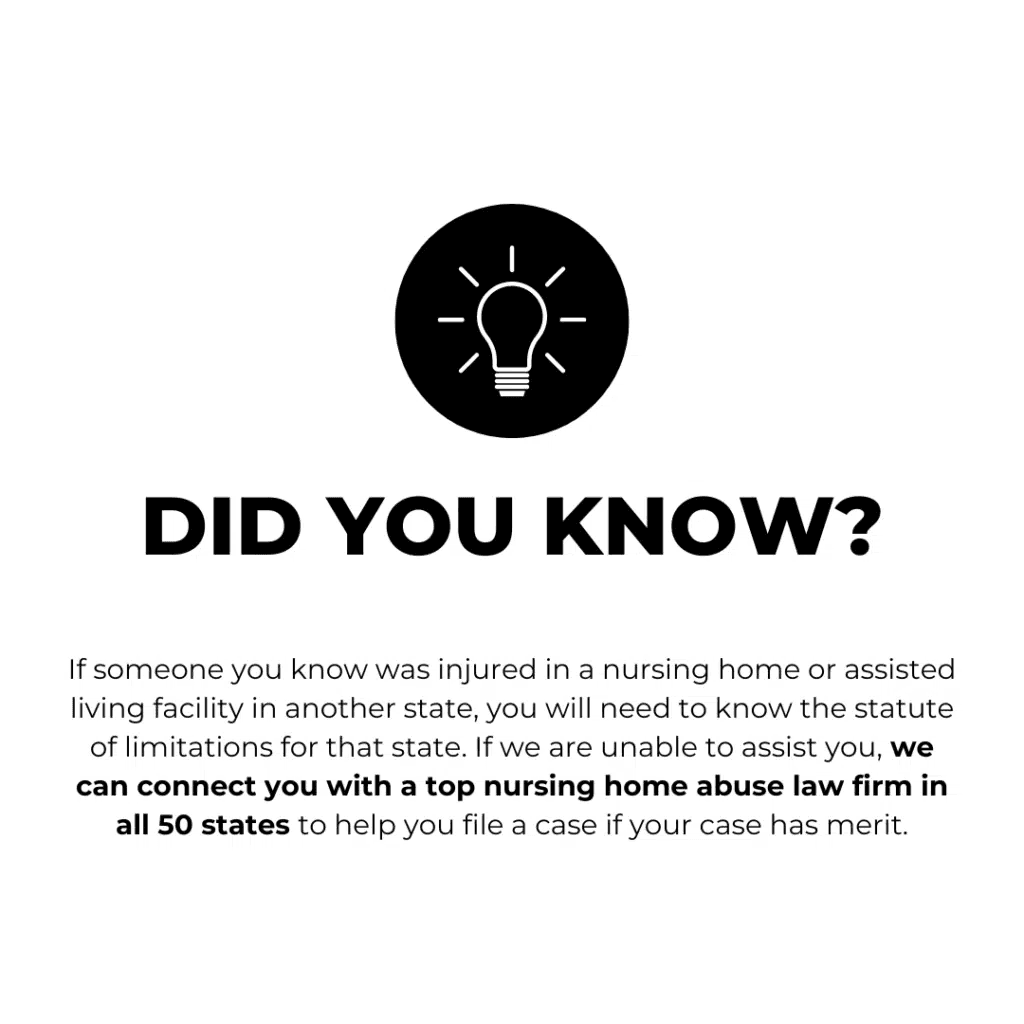
Nursing home abuse and neglect put vulnerable residents at serious risk, leading to malnutrition, dehydration, infections, and preventable injuries. When facilities fail to provide adequate care, residents suffer, and families are left feeling helpless. Lack of supervision, improper medical treatment, and unsafe conditions can result in devastating harm. Understanding the warning signs, knowing your legal rights, and holding negligent facilities accountable are crucial steps in protecting your loved ones. Learn how to take action and seek justice.
November 5, 2024
3 min
You may have heard about focus groups being used to by companies to test marketing or concepts for new products. You may have even been in one yourself. But did you know that the best trial lawyers often use focus groups to help build their case?
Focus groups are an instrumental part of the lifecycle of a case at Michael Hill Trial Law. Our nursing home abuse and neglect lawyers are in focus groups almost weekly.
Focus groups are when companies, marketing agencies, and yes – even trial lawyers – gather together a group of people from different backgrounds and with all kinds of life experiences to get input and insight on a variety of ideas and strategies. Sometimes these groups provide an impression of a new product, or review advertising and marketing materials to give their reaction.
In the legal context, trial lawyers use focus groups to help evaluate their cases and prepare for trial. Focus groups serve the same role as a jury would in hearing evidence and evaluating important facts.
It’s often said that the lawyer working on the case is the worst person to evaluate the strength of the case. But how can it be that the person who has spent the most time working on the case and knows the most about it is the worst person to evaluate it?
Trial lawyers believe in their cases, believe in their clients, and believe in their abilities – all good qualities to have, but it can make it difficult for the lawyer to appreciate weaknesses in the case, or to feel overly confident about some facts or evidence. Simply put, they have too much invested in the case to be objective. This results in something called confirmation bias – a concept in psychology where once we have formed a belief, we use other evidence to simply confirm what we already believe. Look at the current state of politics as an example. It often does not matter what people hear. Their minds are made up and any new information simply reinforces what they already believe.
Gathering a group of people together with a broad range of experiences, education, and opinions can help the lawyer get an idea of how a jury might view the case. Just like the jury, the focus group has a clean slate and fresh perspective on the case, and who don’t have a stake in the outcome. When a trial lawyer puts their case in front of a focus group, the focus group gives insight that the lawyer can use to strengthen the case. If the lawyer only presented the case to the jury, the jury’s opinions about weaknesses in the case come too late to change the outcome.
The focus group can also provide valuable insight that the case is weaker than the lawyer may have thought. The importance of learning the weaknesses of the case early cannot be overstated. This potentially provides enough time to correct any weaknesses or have a candid discussion with the client that there are limitations on the case. No reputable lawyer wants to pursue a case that doesn’t have merit, and in our experience, few clients want their time wasted pursuing cases that will never be successful.
A focus group of a nursing home neglect or nursing home abuse case can look like anything from a run-through of the trial itself (often referred to as a mock trial), to a question and answer session about some of the themes and issues in the case, and anything in between. Trial lawyers might show clips of their client’s testimony in deposition, or a practice run of the questioning at trial, to get input on how the witness can be more persuasive or credible. Trial lawyers can also practice their arguments and presentation to get the focus group’s opinion, or show key pieces of evidence to the focus group to get their reaction.
The possibilities for how to effectively use a focus group are limitless, and a creative trial attorney can get a wealth of knowledge about their case from the focus group.

The most effective focus group sessions often involve the lawyer putting on both sides of the argument – both the resident’s perspective as well as the nursing home’s response – to get an honest and objective opinion about the strength of the case. One lawyer working together with the trial lawyer for the family might take on the role of the nursing home’s attorney, and make the same arguments the trial team thinks the nursing home’s lawyer will make in front of the jury. That way, the focus group can hear both sides of the story, and give the lawyers their opinion about the strengths and weaknesses of each side of the case. Remember, it is never about what the lawyer thinks.
The trial lawyer will take the input from the focus group and apply it to help present the strongest possible arguments at trial, focus on the most convincing evidence, prepare their clients and witnesses to testify fearlessly, address weaknesses in their own case, and hone in on the gaps in their opponent’s case.
Nursing homes have many advantages on their side, but a well-prepared trial lawyer who uses the information gained from a focus group can tip the scales in the patient’s favor from the first moments of the trial. Knowing the strongest and weakest points of the case before going in front of the jury gives a huge head start to the trial lawyer over their opponents.
Just like focus groups for corporations and marketing agencies, focus groups for trial lawyers are often confidential. They are considered “attorney work product” and never need to be disclosed to the opposing lawyers.
Participants typically sign a confidentiality statement or non-disclosure agreement, so that the information and strategies discussed by the trial lawyer are kept secret from the other side. This lets the trial lawyer have honest discussions with the focus group, and present arguments and evidence without fear of that information being used by the nursing home’s lawyers.
Sometimes though, the trial lawyer might film the focus group’s reaction to the nursing home’s care, or some key fact or piece of evidence in the case. If the focus group has a strong reaction against the nursing home’s conduct or arguments, the trial lawyer might provide that filmed reaction to the nursing home’s lawyers or insurer to help push for a truly just settlement.
There are just as many options about how to use the information from the focus group as there are options about how to conduct the focus group, and a skilled trial lawyer will know how to use that information to their client’s benefit.
One of the best benefits of a focus group for trial lawyers is an opportunity to practice skills they will use in the courtroom. Law school does a terrible job teaching students how to be trial lawyers, and it used to be that the only way to learn was to take young attorneys and put them on real trials to gain experience. This can be an excellent way to learn, but not necessarily a good way to get the best results for clients. With changes in the legal system over the last 20 years, the number of trials has diminished significantly. This has resulted in fewer and fewer opportunities for lawyers to gain valuable trial experience.
A good way to learn is to give young lawyers the chance to practice these skills in a controlled environment where there’s no risk of a jury deciding against the client. A focus group can give a similar experience to presenting a case in court, but with much lower stakes. Young lawyers can gain confidence and skills, while the trial team learns valuable information about their case from the focus group. The young lawyer can even get feedback from the focus group about their technique, and work on areas for improvement.
The learning opportunities aren’t just for young lawyers. Even experienced trial lawyers can use focus groups to explore new concepts and ideas for trial presentation, and iron out rough spots in their own presentation skills. This feedback is much more accessible to the trial lawyer than getting feedback from jurors – the jurors’ job is to decide the case, and after a days or weeks-long trial they may not be willing to stick around after the verdict to critique the lawyer’s presentation. A focus group can be asked specifically to give opinions on the lawyer’s skills and fill out detailed questionnaires that the lawyer can review at the end of the day.
Ideally, the patient or family shouldn’t need to ask the trial lawyer representing them to conduct a focus group on their case. Most trial lawyers with a passion for this work will want to get a focus group’s input on their case – or even multiple focus groups. Most trial lawyers advance the case costs and expenses of getting ready for trial, so there should be no out-of-pocket expense for the client to have their case presented to a focus group.
A focus group is also a good opportunity for clients and witnesses who are nervous about talking in front of large groups to practice these skills with their lawyer. If you are worried about how you’ll do on the witness stand, asking your lawyer to set up a focus group to do a dry-run through your testimony might help relieve some of those concerns. It also helps get feedback on how you tell your story on the stand, and improve your ability to speak to the jury in a convincing and believable way.
We absolutely do use focus groups for our cases, and find them very valuable in obtaining justice for our clients and holding nursing homes accountable. The lawyers at Michael Hill Trial Law are typically in focus groups or mock trials presenting nursing home or assisted living abuse and neglect cases weekly.
Knowledge is power when pursuing lawsuits against nursing homes, and there are few sources of knowledge better than the objective input from focus groups. We regularly conduct focus groups to help strengthen our skills, and develop our cases for trial.
If you or a loved one has been injured in the nursing home, and you believe you have a potential nursing home neglect or nursing home abuse case, contact our trial lawyers to discuss your case and learn how we can help you obtain justice.
Disclaimer: This information is provided for informational purposes only. Nothing in this article should be construed as providing legal advice or the creation of an attorney client relationship. Laws are updated frequently and change from state to state. If you desire legal advice, you can contact Michael Hill Trial Law at www.protectseniors.com, send an email to info@protectseniors.com, call (800) 659-2712 to begin an investigation, or contact another attorney.